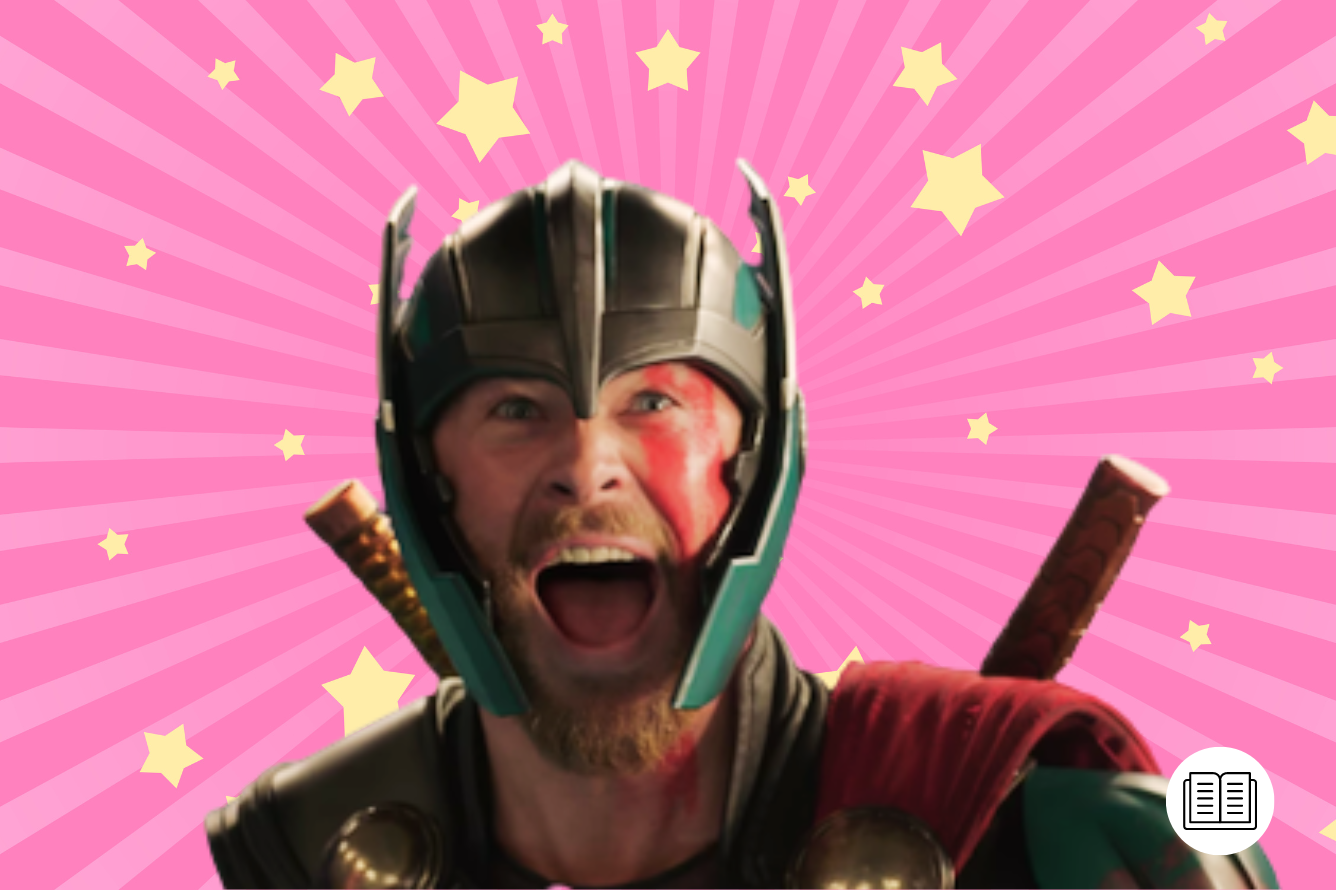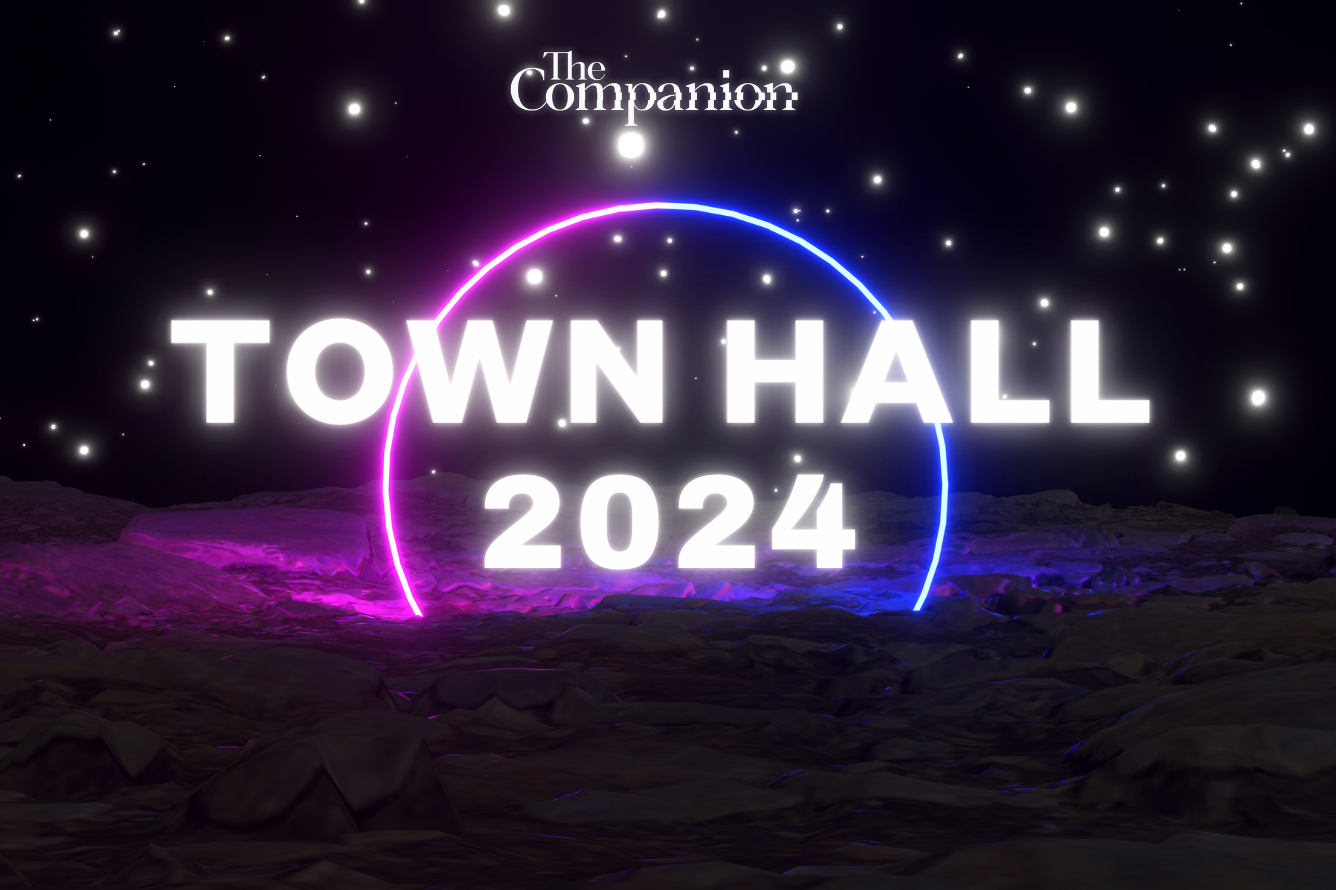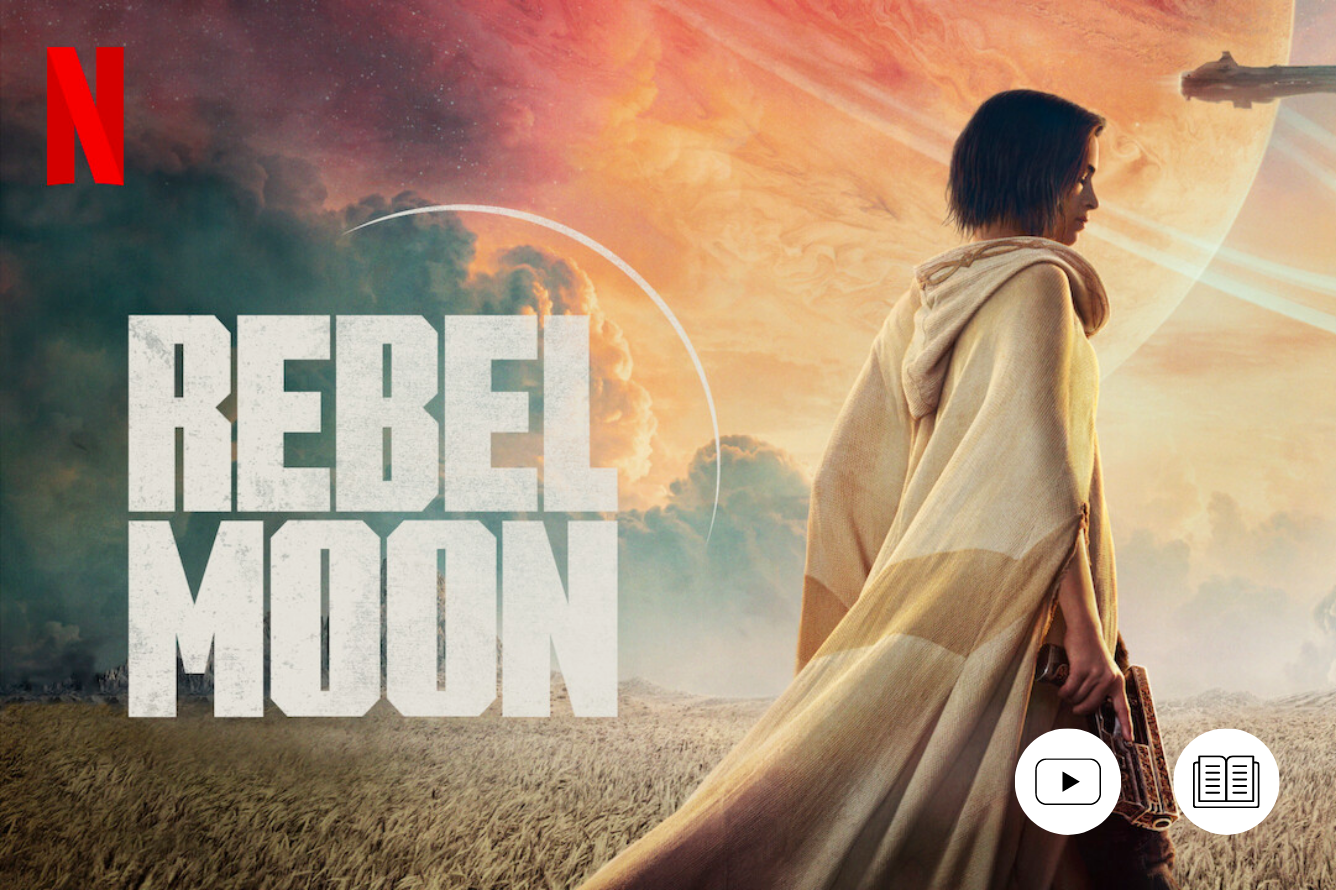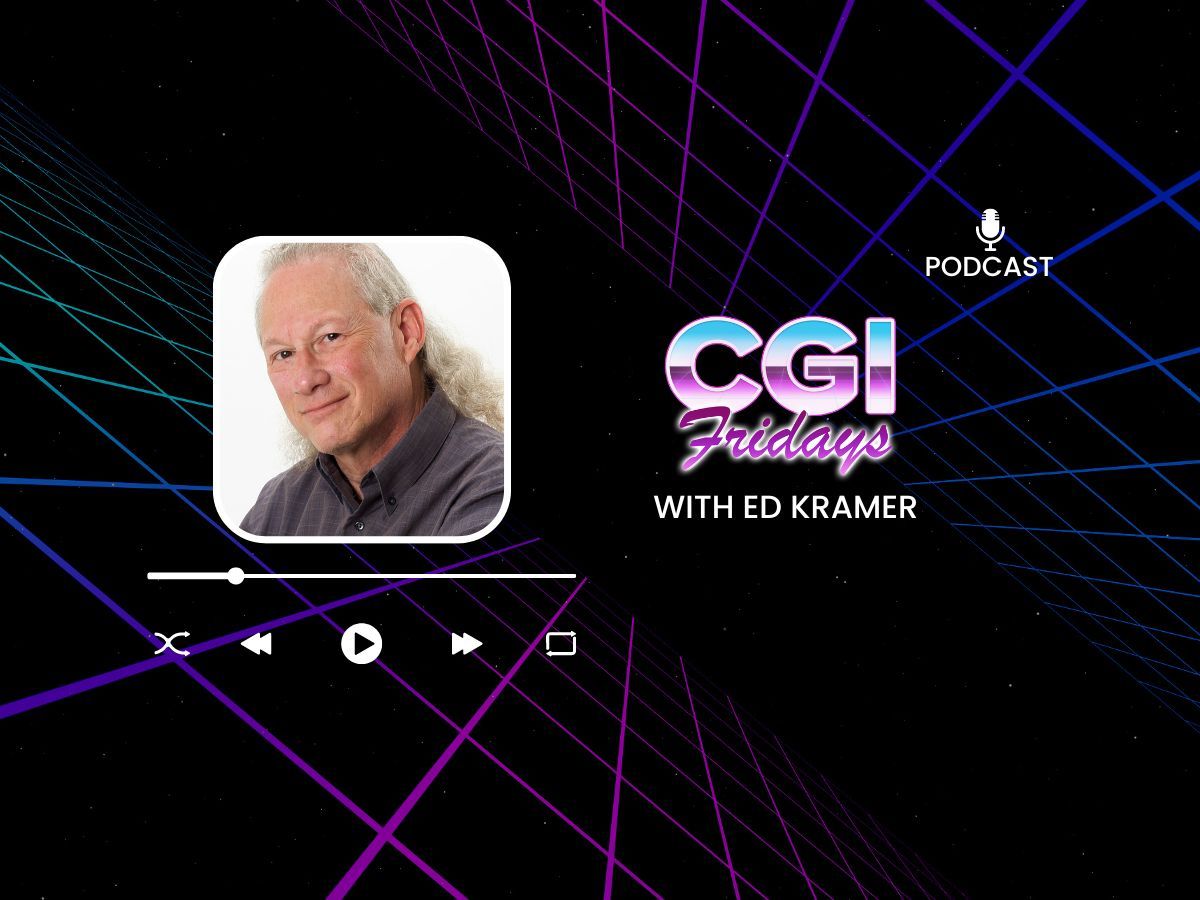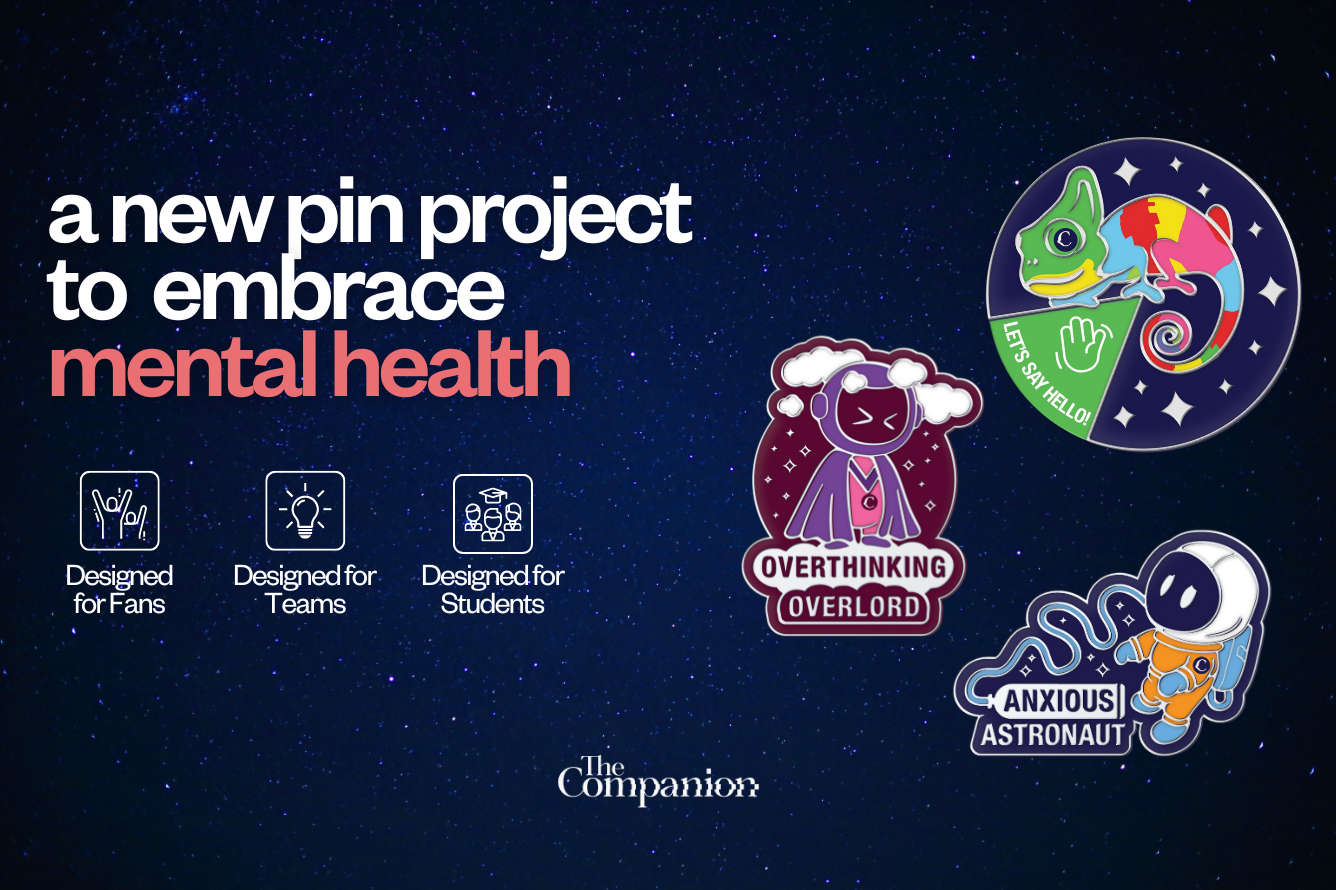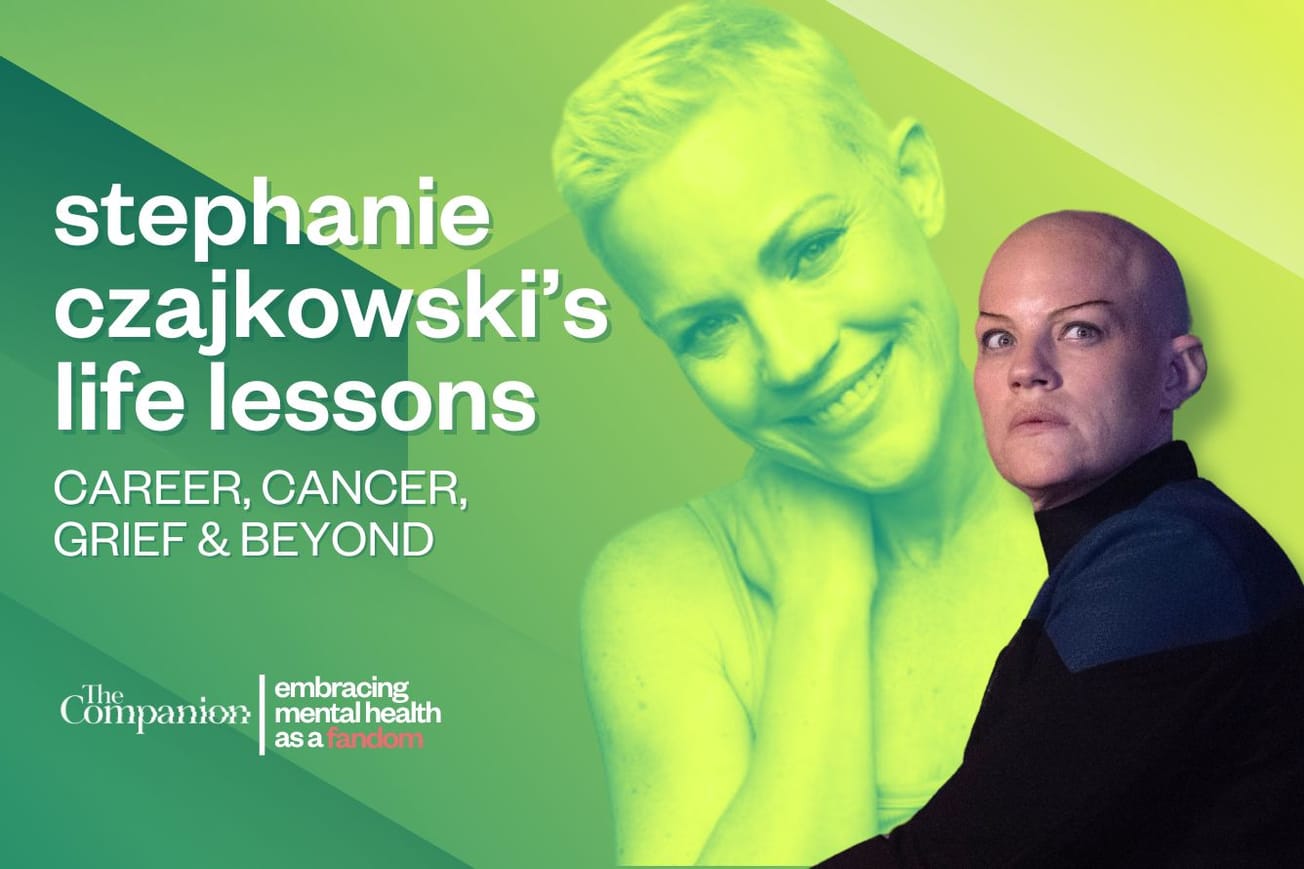I never cared much about Thor when I was growing up, and his live-action debut did little to improve my opinion of him. Even though the MCU was in its infancy, it was mindboggling to think that a god would have some of the banalest action scenes compared to Iron Man, Hulk, and Captain America. Such is the burden of introducing such a lofty character to general audiences. Though comic creators mined Norse mythology to create stories that could modernize the character, I never believed that a god could face a conflict that actually challenged them.
It should’ve been easy for me to ignore his follow-up movies, but after watching The Avengers (2012), I felt compelled to explore the histories of the heroes the MCU thrust into stardom. The works of contemporary creators like Jason Aaron showed me the kind heart that lay beneath Thor’s stoic exterior. Throughout the comics, there was as much evidence of his constant battle to stay worthy as there was the natural goodness that made it obvious why he could lift Mjölnir, and I felt that the first two phases of the MCU – for all their flaws – had done well to capture those elements of his character.
But then, Thor: Ragnarok (2017).
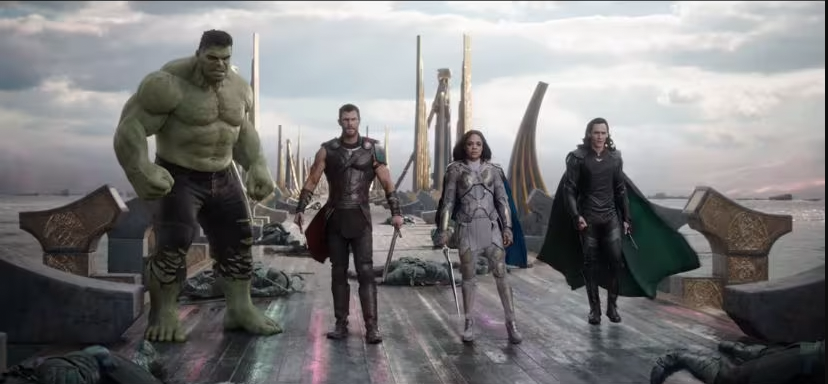
Thor: Ragnarok’s Change of Tone
On many fronts, Thor: Ragnarok thrives where Thor (Chris Hemsworth)’s prior MCU appearances were lacking, particularly when it comes to Taika Waititi’s handling of Loki (Tom Hiddleston) and the introduction of eccentric yet charming characters like Valkyrie (Tessa Thompson) and Hela (Cate Blanchett). They make the movie an engaging experience that taps into the brighter aspects of Marvel’s style. However, the light-hearted approach to the movie’s story often undermines the gravity of the events taking place, and that tonal disconnect sheds a particularly harsh light on Thor.
The first time I watched Ragnarok I was struck by how similar Thor’s narrative journey was to his first solo movie. In both films, Thor is stripped of his hammer and displaced to an unfamiliar world he must escape. The circumstances of his exile spark a series of revelations that change him for the better, and both movies end with Thor sacrificing something important to him for the sake of protecting the many. In Thor, he cuts himself off from his newfound love Jane Foster (Natalie Portman) by destroying the Rainbow Bridge to save the Frost Giants from genocide while in Thor: Ragnarok he indirectly destroys Asgard to save its citizens from Hela’s reign. What truly sets Thor apart in Thor: Ragnarok is his wildly unserious demeanor.
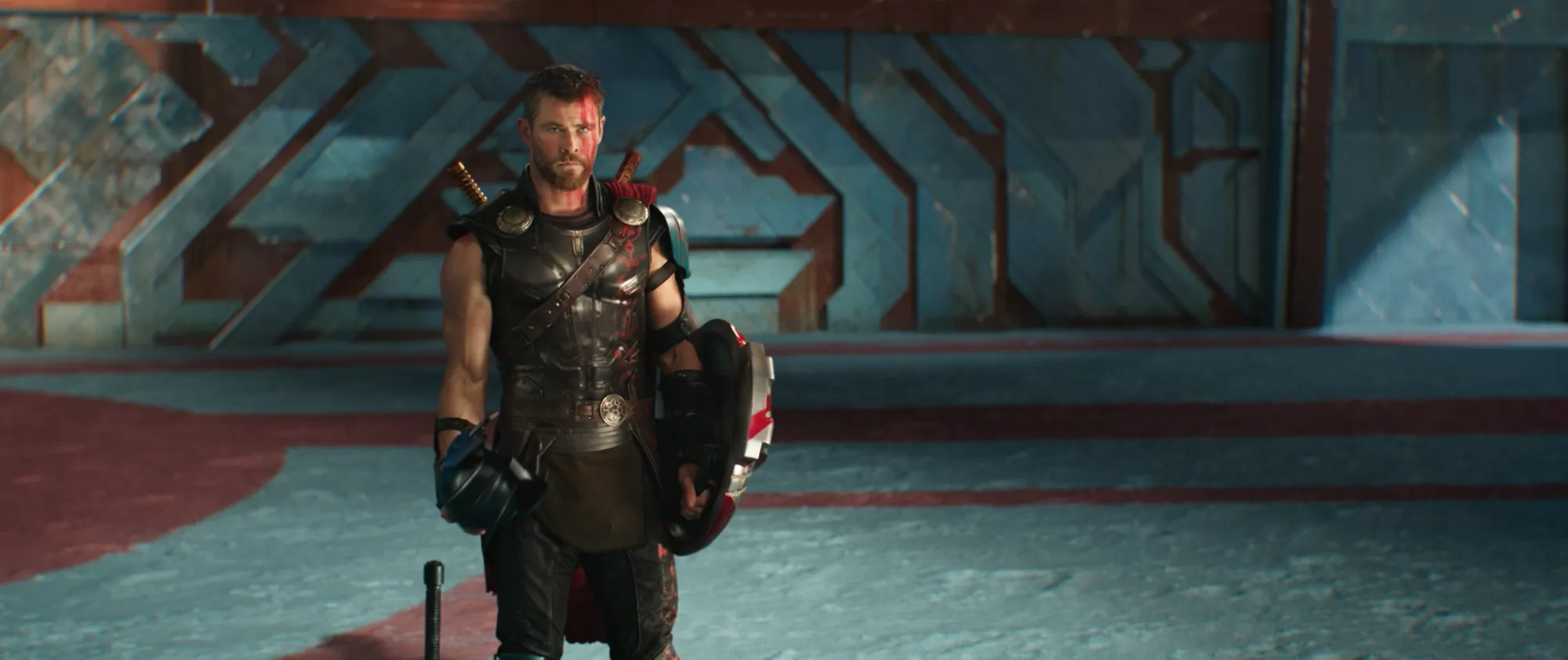
Up to Thor: Ragnarok, Thor’s character strongly mirrored his comic book counterpart; he brings to most situations a seriousness you’d expect from a god determined to protect innocents from harm. But the sense of decorum that’d been established by his former movies is gradually stripped away and his responses to most situations are a better reflection of how Banner (Mark Ruffalo) would react if he were conscious when he arrived on Sakaar. Behold Thor the “mighty Avenger” who whimpers at the threat of a haircut. Thor, the spacefaring hero, screams like a child on a 4D ride at Universal Studios. Several critics have lauded Thor: Ragnarok with a few likening it to Guardians of the Galaxy (2014), but I’d contend that their tonal similarities demonstrate a dramatic misunderstanding of the character and his background.
After all, this is Ragnarök that we’re talking about: the grand death of the Norse gods and the destruction of the world. Yet, major events which should resonate with viewers are mostly stale, not just because they’re usually drowned out by comic relief, but because the MCU has spent so long discarding the mythological aspects of Thor’s background that their disposal means nothing at all. Asgard, the so-called realm of the gods, hasn’t served as much more than a background drop throughout the MCU. Therefore, its destruction has no real weight for the viewer, especially with Ragnarok unveiling the realm’s colonial history.

That leaves Asgard’s residents as the audience’s emotional link to the events of the movie, and that falls short because of how haphazardly they’re treated. Though the impact of Odin (Anthony Hopkins)’s death is felt over the course of the movie, his passing is anticlimactic. Compared to Frigga (Rene Russo) who died fighting Malekith (Christopher Eccleston) in Thor: The Dark World (2013), it almost seemed lazy to get rid of him so quickly. That same lack of emotion is present just a few moments later when the Warriors Three are callously slaughtered alongside dozens of Asgardian soldiers who attempt to stand against Hela. Characters that have been present in Thor’s canon for decades are disposed of without a second’s hesitation ultimately dulling the impact of the events taking place. The viewer might sympathize with Asgard’s citizens who race to escape the realm’s destruction, but you can only care so much for nameless extras.
The film ends with Thor and the other Asgardian refugees setting sail for Earth with the question of what comes next hanging silently in the air, and it’s that very question that attests to how adrift Thor’s narrative progression has felt in recent MCU entries. It’s almost laughable that Thor’s next opponent would be Gorr the God Butcher considering how few gods there were left, which is ironic because technically he’s the perfect antagonist to square off against Thor in his next installment. Now that we know about Asgard’s history of conquest it makes sense that someone seeks payback for the actions of gods like Odin and Hela. The question is whether Thor was the right person to address that threat.
Playing Grief for Laughs in Avengers: Endgame
Since Thor: Ragnarok received critical acclaim for its portrayal of Thor, the MCU has become increasingly committed to showing him at his lowest points if it means there’s a joke to be made. While his thirst for revenge buffers that humor in Avengers: Infinity War (2018), the MCU’s writers fully compensated for that in Avengers: Endgame (2019). After months of keeping the Avengers’ condition after the Snap secret, Endgame revealed that Thor became a depressed recluse, now sporting a fat suit and an alcohol addiction.

Accusations of fat-shaming were leveled at the movie and for good reason; where Thor: Ragnarok used Thor’s new slapstick routine as the vehicle for its comic relief, Avengers: Endgame used his weight. When he starts to break down after seeing his dead mother, he’s slapped in the face and told to get it together. When he finally gets to say goodbye to Frigga, her last words to him are “eat a salad.” My theater laughed during these moments, and with Waititi’s character Korg present to witness Thor’s fall from grace, it feels impossible to ignore Thor: Ragnarok’s influence on Thor’s narrative direction. This is Thor’s newfound appeal to general audiences: after humanizing a god to make him more relatable, we mock him for the flaws that make him human.
Hemsworth deflected the fat-shaming accusations by stating that he thought it was “a perfect description of where Thor was in his life at that time [and] there’s a vulnerability to that character and to that version […] and that’s his physical expression of that.” While there’s certainly merit in depicting the effects that depression has on Thor or any of the other Avengers considering the trauma they experienced, that effort falls short when you can’t separate Thor’s depression from the humiliation he’s subject to because of its effects. Nobody else’s physique in the movie changes as radically as Thor’s does, and nobody else does as little to support the world that Thanos has scarred.
Thor gaining weight can’t be allegorical for him accepting a new status quo, it only acts as a physical manifestation of his failure. Thanos, who previously couldn’t stop Thor’s newly forged axe Stormbreaker with the full might of the Infinity Gauntlet, nearly plunges the axe’s blade into Thor’s chest without a gauntlet in Avengers: Endgame. His weight is one of many factors that renders him a burden to his allies, and now that the source of his misery is squashed, he can return to the fit and mighty god we all know and love.

The apparent path forward would be to create new conflicts with Thor’s more well-known antagonists (hence Gorr). Yet it seems incredibly naive to think that these confrontations will hold the same weight when Thor’s mythos is a shadow of what it was in the comics. In the comics, Thor initially encounters Gorr as a young god, still immature and unworthy to lift Mjolnir. Despite his realizing how dangerous Gorr is, his pride keeps him from permanently neutralizing him when he has the chance. Centuries later as Thor races across the cosmos to confirm the deaths of gods who’ve long been missing, he starts to reckon with the apathy that allowed gods to forget the countless deities Gorr leaves in his wake.
What weight does that story hold when we haven’t seen any gods outside of Asgard and most of those gods we have seen are dead? How much depth can Thor bring to the role of a god questioning his part in a cycle of violence and neglect when it’s likely that more time will be spent showing him bickering with Star-Lord (Chris Evans) of all people? Even though the MCU’s latest entries have worked to reassert Thor’s godhood, there’ve been few moments since Thor: Ragnarok where he’s actually felt like one, and I doubt that keeping company with the Guardians of the Galaxy will do anything significant to help him in that regard.
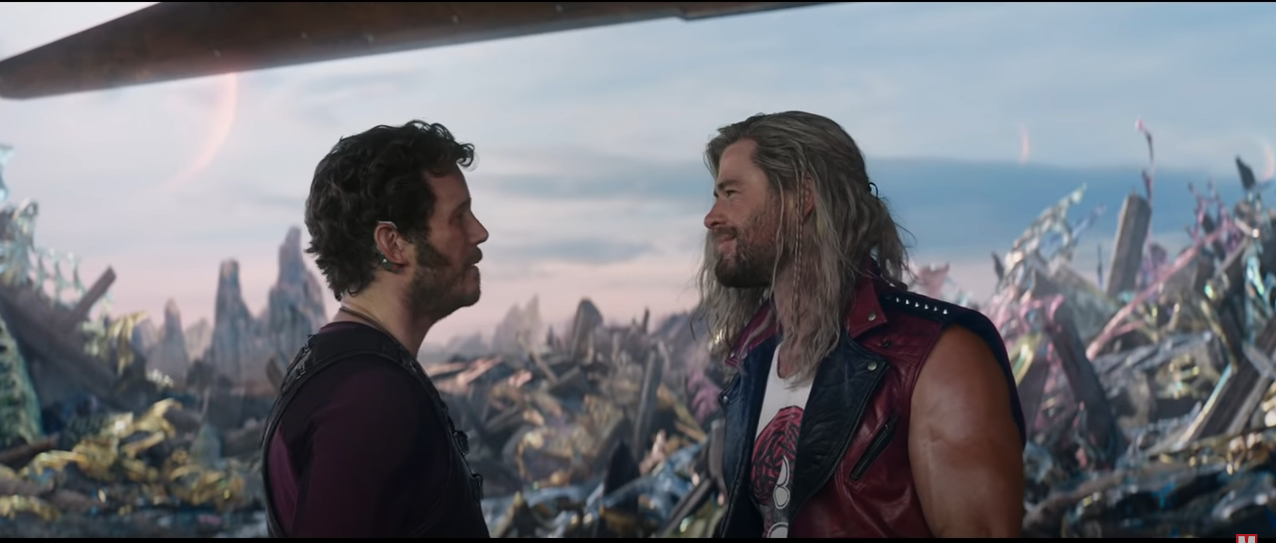
Twilight of the Gods
Thor has always been a complex character in the Marvel Universe. He can’t be limited to the conventional mortal opponents that most characters would face, but he also must be grounded enough to be tested by the threats the Avengers regularly deal with. But to take his godhood so lightly and imply that humor and humiliation are the only ways to make his character compelling does a major disservice to the character when he’s already humbled in his origin story.
Vox’s Thor: Ragnarok review states that “there’s a keen realization of Thor’s ego […] as the film explores what happens to a man who’s been told he’s a god since the day he was born, and the alienation he can feel as a result. When someone is spoon-fed the myth of his own greatness daily, it’s only a matter of time before he starts believing it above all else.” Though the sentiment most likely refers to Thor reckoning with his understanding of Asgard’s history being a lie, it just as easily applies to Thor’s prideful view of himself. Based on his upbringing alone, Thor should be one of the most emotionally distant characters in Marvel’s canon. The issue with Thor: Ragnarok’s approach is not only that it rehashes Thor’s character development from his first movie, but that it suggests that Thor would retain the arrogance that defined him in his first movie when it is the company of humans that humbles him.
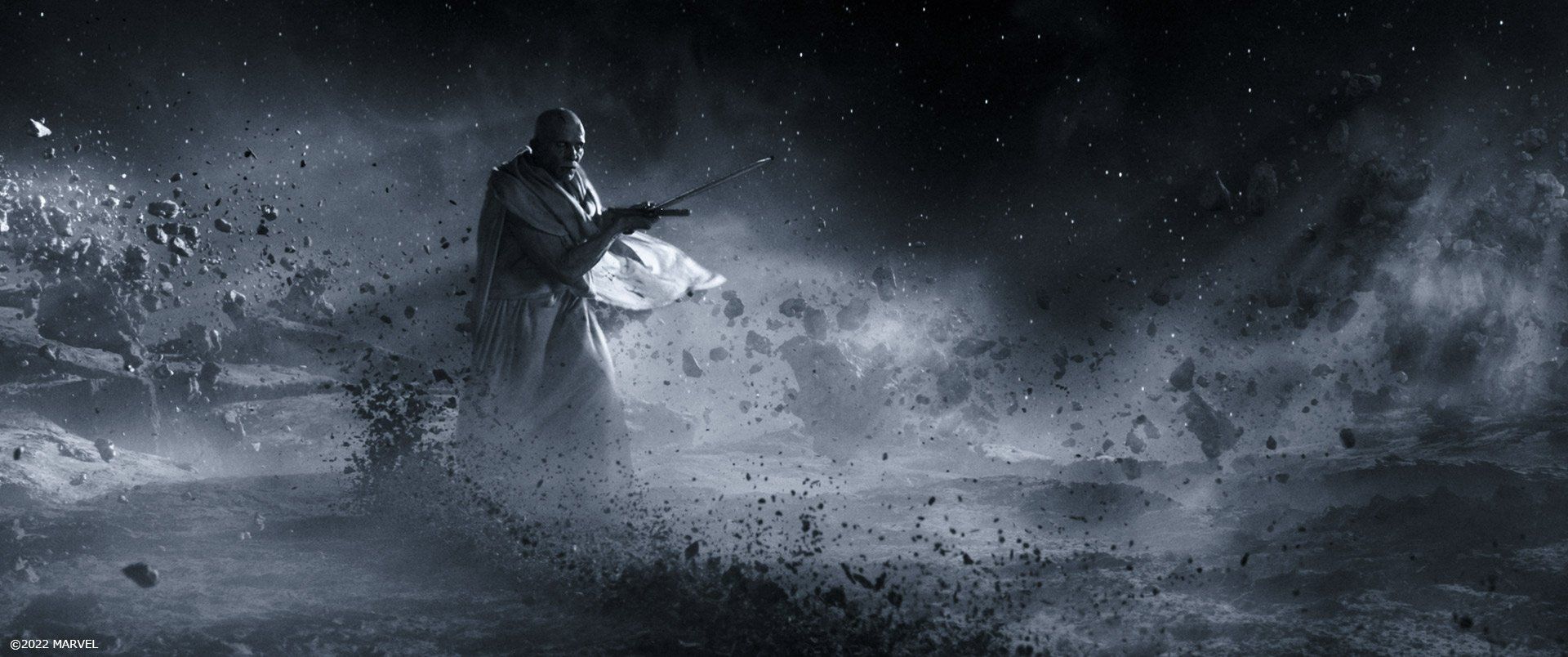
Thor’s inciting incident as a character is his being forced to live removed from his powers to make him acknowledge that simply being a god doesn’t make him great. As he develops his kinship with mortals, he acknowledges that the gulf that divides them isn’t as wide as he once thought and chooses to fight on our behalf. However, this development never drives him to forget that he is a god. What sets him apart from the kinds of gods Gorr despises is how he uses his station to serve mortals. Yes, he is mightier than us, but like him, we are passionate, courageous, and loyal to a fault.
What MCU fans should keep in mind going forward is that Thor always offers some reflection of humanity. Early on in Jason Aaron’s seven-year Thor run, he depicts an older Thor, who was christened all-father and nearly bears witness to the end of all mortal life. When two humans rise from the ashes of the scorched Earth he protects, the task falls to him to name them. Who does he choose? Odin and Freyja? Loki and Sif? No. He names the risen man and woman Steve and Jane, after the two people he respected and loved the most. This is to say that at his best, Thor can represent our most altruistic ideals and we can take pride in the fact that it was contact with mankind that compelled him to turn a new leaf. But if we continue to humiliate him for the sake of our entertainment, we’d be painting a far more indicting image of ourselves as audiences than him as a god who relentlessly fights on our behalf.
This article was first published on September 7th, 2022, on the original Companion website. It has been updated with the release of Thor: Love and Thunder (2022).
The cost of your membership has allowed us to mentor new writers and allowed us to reflect the diversity of voices within fandom. None of this is possible without you. Thank you. 🙂


